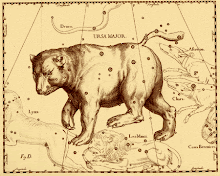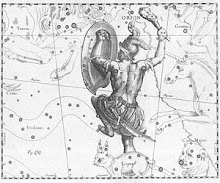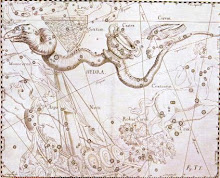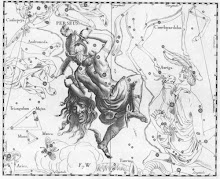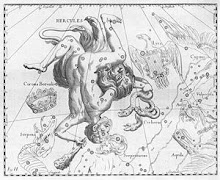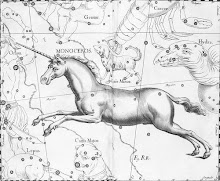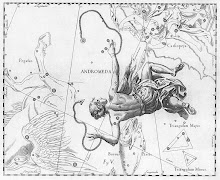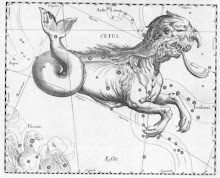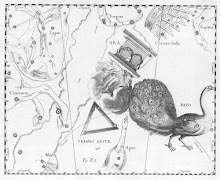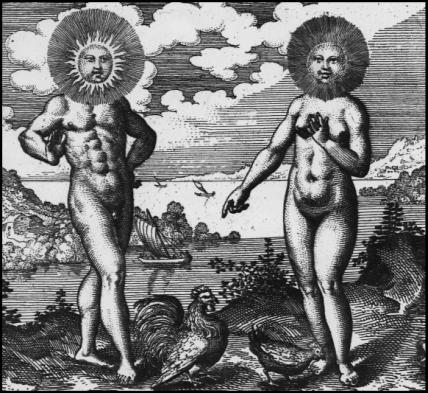Affichage des articles dont le libellé est MALORY Le Morte d'Arthur (Book XI). Afficher tous les articles
Affichage des articles dont le libellé est MALORY Le Morte d'Arthur (Book XI). Afficher tous les articles
THOMAS MALORY Le Morte d'Arthur (Book XI)
BOOK XI
CHAPTER I. How Sir Launcelot rode on his adventure, and how he holp a dolorous lady from her pain, and how that he fought with a dragon.
NOW leave we Sir Tristram de Liones, and speak we of Sir Launcelot du Lake, and of Sir Galahad, Sir Launcelot's son, how he was gotten, and in what manner, as the book of French rehearseth. Afore the time that Sir Galahad was gotten or born, there came in an hermit unto King Arthur upon Whitsunday, as the knights sat at the Table Round. And when the hermit saw the Siege Perilous, he asked the king and all the knights why that siege was void. Sir Arthur and all the knights answered: There shall never none sit in that siege but one, but if he be destroyed. Then said the hermit: Wot ye what is he? Nay, said Arthur and all the knights, we wot not who is he that shall sit therein. Then wot I, said the hermit, for he that shall sit there is unborn and ungotten, and this same year he shall be gotten that shall sit there in that Siege Perilous, and he shall win the Sangreal. When this hermit had made this mention he departed from the court of King Arthur.
And then after this feast Sir Launcelot rode on his adventure, till on a time by adventure he passed over the pont of Corbin; and there he saw the fairest tower that ever he saw, and there-under was a fair town full of people; and all the people, men and women, cried at once: Welcome, Sir Launcelot du Lake, the flower of all knighthood, for by thee all we shall be holpen out of danger. What mean ye, said Sir Launcelot, that ye cry so upon me? Ah, fair knight, said they all, here is within this tower a dolorous lady that hath been there in pains many winters and days, for ever she boileth in scalding water; and but late, said all the people, Sir Gawaine was here and he might not help her, and so he left her in pain. So may I, said Sir Launcelot, leave her in pain as well as Sir Gawaine did. Nay, said the people, we know well that it is Sir Launcelot that shall deliver her. Well, said Launcelot, then shew me what I shall do.
Then they brought Sir Launcelot into the tower; and when he came to the chamber thereas this lady was, the doors of iron unlocked and unbolted. And so Sir Launcelot went into the chamber that was as hot as any stew. And there Sir Launcelot took the fairest lady by the hand that ever he saw, and she was naked as a needle; and by enchantment Queen Morgan le Fay and the Queen of Northgalis had put her there in that pains, because she was called the fairest lady of that country; and there she had been five years, and never might she be delivered out of her great pains unto the time the best knight of the world had taken her by the hand. Then the people brought her clothes. And when she was arrayed, Sir Launcelot thought she was the fairest lady of the world, but if it were Queen Guenever.
Then this lady said to Sir Launcelot: Sir, if it please you will ye go with me hereby into a chapel that we may give loving and thanking unto God? Madam, said Sir Launcelot, come on with me, I will go with you. So when they came there and gave thankings to God all the people, both learned and lewd, gave thankings unto God and him, and said: Sir knight, since ye have delivered this lady, ye shall deliver us from a serpent there is here in a tomb. Then Sir Launcelot took his shield and said: Bring me thither, and what I may do unto the pleasure of God and you I will do. So when Sir Launcelot came thither he saw written upon the tomb letters of gold that said thus: Here shall come a leopard of king's blood, and he shall slay this serpent, and this leopard shall engender a lion in this foreign country, the which lion shall pass all other knights. So then Sir Launcelot lift up the tomb, and there came out an horrible and a fiendly dragon, spitting fire out of his mouth. Then Sir Launcelot drew his sword and fought with the dragon long, and at the last with great pain Sir Launcelot slew that dragon. Therewithal came King Pelles, the good and noble knight, and saluted Sir Launcelot, and he him again. Fair knight, said the king, what is your name? I require you of your knighthood tell me!
CHAPTER II. How Sir Launcelot came to Pelles, and of the Sangreal, and of Elaine, King Pelles' daughter.
SIR, said Launcelot, wit you well my name is Sir Launcelot du Lake. And my name is, said the king, Pelles, king of the foreign country, and cousin nigh unto Joseph of Armathie. And then either of them made much of other, and so they went into the castle to take their repast. And anon there came in a dove at a window, and in her mouth there seemed a little censer of gold. And herewithal there was such a savour as all the spicery of the world had been there. And forthwithal there was upon the table all manner of meats and drinks that they could think upon. So came in a damosel passing fair and young, and she bare a vessel of gold betwixt her hands; and thereto the king kneeled devoutly, and said his prayers, and so did all that were there. O Jesu, said Sir Launcelot, what may this mean? This is, said the king, the richest thing that any man hath living. And when this thing goeth about, the Round Table shall be broken; and wit thou well, said the king, this is the holy Sangreal that ye have here seen. So the king and Sir Launcelot led their life the most part of that day. And fain would King Pelles have found the mean to have had Sir Launcelot to have lain by his daughter, fair Elaine. And for this intent: the king knew well that Sir Launcelot should get a child upon his daughter, the which should be named Sir Galahad the good knight, by whom all the foreign country should be brought out of danger, and by him the Holy Greal should be achieved.
Then came forth a lady that hight Dame Brisen, and she said unto the king: Sir, wit ye well Sir Launcelot loveth no lady in the world but all only Queen Guenever; and therefore work ye by counsel, and I shall make him to lie with your daughter, and he shall not wit but that he lieth with Queen Guenever. O fair lady, Dame Brisen, said the king, hope ye to bring this about? Sir, said she, upon pain of my life let me deal; for this Brisen was one of the greatest enchantresses that was at that time in the world living. Then anon by Dame Brisen's wit she made one to come to Sir Launcelot that he knew well. And this man brought him a ring from Queen Guenever like as it had come from her, and such one as she was wont for the most part to wear; and when Sir Launcelot saw that token wit ye well he was never so fain. Where is my lady? said Sir Launcelot. In the Castle of Case, said the messenger, but five mile hence. Then Sir Launcelot thought to be there the same might. And then this Brisen by the commandment of King Pelles let send Elaine to this castle with twenty-five knights unto the Castle of Case. Then Sir Launcelot against night rode unto that castle, and there anon he was received worshipfully with such people, to his seeming, as were about Queen Guenever secret.
So when Sir Launcelot was alighted, he asked where the queen was. So Dame Brisen said she was in her bed; and then the people were avoided, and Sir Launcelot was led unto his chamber. And then Dame Brisen brought Sir Launcelot a cup full of wine; and anon as he had drunken that wine he was so assotted and mad that he might make no delay, but withouten any let he went to bed; and he weened that maiden Elaine had been Queen Guenever. Wit you well that Sir Launcelot was glad, and so was that lady Elaine that she had gotten Sir Launcelot in her arms. For well she knew that same night should be gotten upon her Galahad that should prove the best knight of the world; and so they lay together until underne of the' morn; and all the windows and holes of that chamber were stopped that no manner of day might be seen. And then Sir Launcelot remembered him, and he arose up and went to the window.
CHAPTER III. How Sir Launcelot was displeased when he knew that he had lain by Dame Elaine, and how she was delivered of Galahad.
AND anon as he had unshut the window the enchantment was gone; then he knew himself that he had done amiss. Alas, he said, that I have lived so long; now I am shamed. So then he gat his sword in his hand and said: Thou traitress, what art thou that I have lain by all this night? thou shalt die right here of my hands. Then this fair lady Elaine skipped out of her bed all naked, and kneeled down afore Sir Launcelot, and said: Fair courteous knight, come of king's blood, I require you have mercy upon me, and as thou art renowned the most noble knight of the world, slay me not, for I have in my womb him by thee that shall be the most noblest knight of the world. Ah, false traitress, said Sir Launcelot, why hast thou betrayed me? anon tell me what thou art. Sir, she said, I am Elaine, the daughter of King Pelles. Well, said Sir Launcelot, I will forgive you this deed; and therewith he took her up in his arms, and kissed her, for she was as fair a lady, and thereto lusty and young, and as wise, as any was that time living. So God me help, said Sir Launcelot, I may not wite this to you; but her that made this enchantment upon me as between you and me, an I may find her, that same Lady Brisen, she shall lose her head for witchcrafts, for there was never knight deceived so as I am this night. And so Sir Launcelot arrayed him, and armed him, and took his leave mildly at that lady young Elaine, and so he departed. Then she said: My lord Sir Launcelot, I beseech you see me as soon as ye may, for I have obeyed me unto the prophecy that my father told me. And by his commandment to fulfil this prophecy I have given the greatest riches and the fairest flower that ever I had, and that is my maidenhood that I shall never have again; and therefore, gentle knight, owe me your good will.
And so Sir Launcelot arrayed him and was armed, and took his leave mildly at that young lady Elaine; and so he departed, and rode till he came to the Castle of Corbin, where her father was. And as fast as her time came she was delivered of a fair child, and they christened him Galahad; and wit ye well that child was well kept and well nourished, and he was named Galahad because Sir Launcelot was so named at the fountain stone; and after that the Lady of the Lake confirmed him Sir Launcelot du Lake.
Then after this lady was delivered and churched, there came a knight unto her, his name was Sir Bromel la Pleche, the which was a great lord; and he had loved that lady long, and he evermore desired her to wed her; and so by no mean she could put him off, till on a day she said to Sir Bromel: Wit thou well, sir knight, I will not love you, for my love is set upon the best knight of the world. Who is he? said Sir Bromel. Sir, she said, it is Sir Launcelot du Lake that I love and none other, and therefore woo me no longer. Ye say well, said Sir Bromel, and sithen ye have told me so much, ye shall have but little joy of Sir Launcelot, for I shall slay him wheresomever I meet him. Sir, said the Lady Elaine, do to him no treason. Wit ye well, my lady, said Bromel, and I promise you this twelvemonth I shall keep the pont of Corbin for Sir Launcelot's sake, that he shall neither come nor go unto you, but I shall meet with him.
CHAPTER IV. How Sir Bors came to Dame Elaine and saw Galahad, and how he was fed with the Sangreal.
THEN as it fell by fortune and adventure, Sir Bors de Ganis, that was nephew unto Sir Launcelot, came over that bridge; and there Sir Bromel and Sir Bors jousted, and Sir Bors smote Sir Bromel such a buffet that he bare him over his horse's croup. And then Sir Bromel, as an hardy knight, pulled out his sword, and dressed his shield to do battle with Sir Bors. And then Sir Bors alighted and avoided his horse, and there they dashed together many sad strokes; and long thus they fought, till at the last Sir Bromel was laid to the earth, and there Sir Bors began to unlace his helm to slay him. Then Sir Bromel cried Sir Bors mercy, and yielded him. Upon this covenant thou shalt have thy life, said Sir Bors, so thou go unto Sir Launcelot upon Whitsunday that next cometh, and yield thee unto him as knight recreant. I will do it, said Sir Bromel, and that he sware upon the cross of the sword. And so he let him depart, and Sir Bors rode unto King Pelles, that was within Corbin.
And when the king and Elaine his daughter wist that Sir Bors was nephew unto Sir Launcelot, they made him great cheer. Then said Dame Elaine: We marvel where Sir Launcelot is, for he came never here but once. Marvel not, said Sir Bors, for this half year he hath been in prison with Queen Morgan le Fay, King Arthur's sister. Alas, said Dame Elaine, that me repenteth. And ever Sir Bors beheld that child in her arms, and ever him seemed it was passing like Sir Launcelot. Truly, said Elaine, wit ye well this child he gat upon me. Then Sir Bors wept for joy, and he prayed to God it might prove as good a knight as his father was. And so came in a white dove, and she bare a little censer of gold in her mouth, and there was all manner of meats and drinks; and a maiden bare that Sangreal, and she said openly: Wit you well, Sir Bors, that this child is Galahad, that shall sit in the Siege Perilous, and achieve the Sangreal, and he shall be much better than ever was Sir Launcelot du Lake, that is his own father. And then they kneeled down and made their devotions, and there was such a savour as all the spicery in the world had been there. And when the dove took her flight, the maiden vanished with the Sangreal as she came.
Sir, said Sir Bors unto King Pelles, this castle may be named the Castle Adventurous, for here be many strange adventures. That is sooth, said the king, for well may this place be called the adventures place, for there come but few knights here that go away with any worship; be he never so strong, here he may be proved; and but late Sir Gawaine, the good knight, gat but little worship here. For I let you wit, said King Pelles, here shall no knight win no worship but if he be of worship himself and of good living, and that loveth God and dreadeth God, and else he getteth no worship here, be he never so hardy. That is wonderful thing, said Sir Bors. What ye mean in this country I wot not, for ye have many strange adventures, and therefore I will lie in this castle this night. Ye shall not do so, said King Pelles, by my counsel, for it is hard an ye escape without a shame. I shall take the adventure that will befall me, said Sir Bors. Then I counsel you, said the king, to be confessed clean. As for that, said Sir Bors, I will be shriven with a good will. So Sir Bors was confessed, and for all women Sir Bors was a virgin, save for one, that was the daughter of King Brangoris, and on her he gat a child that hight Elaine, and save for her Sir Bors was a clean maiden.
And so Sir Bors was led unto bed in a fair large chamber, and many doors were shut about the chamber. When Sir Bors espied all those doors, he avoided all the people, for he might have nobody with him; but in no wise Sir Bors would unarm him, but so he laid him down upon the bed. And right so he saw come in a light, that he might well see a spear great and long that came straight upon him pointling, and to Sir Bors seemed that the head of the spear brent like a taper. And anon, or Sir Bors wist, the spear head smote him into the shoulder an hand-breadth in deepness, and that wound grieved Sir Bors passing sore. And then he laid him down again for pain; and anon therewithal there came a knight armed with his shield on his shoulder and his sword in his hand, and he bade Sir Bors: Arise, sir knight, and fight with me. I am sore hurt, he said, but yet I shall not fail thee. And then Sir Bors started up and dressed his shield; and then they lashed together mightily a great while; and at the last Sir Bors bare him backward until that he came unto a chamber door, and there that knight yede into that chamber and rested him a great while. And when he had reposed him he came out freshly again, and began new battle with Sir Bors mightily and strongly.
CHAPTER V. How Sir Bors made Sir Pedivere to yield him, and of marvellous adventures that he had, and how he achieved them.
THEN Sir Bors thought he should no more go into that chamber to rest him, and so Sir Bors dressed him betwixt the knight and that chamber door, and there Sir Bors smote him down, and then that knight yielded him What is your name? said Sir Bors. Sir, said he, my name is Pedivere of the Straight Marches. So Sir Bors made him to swear at Whitsunday next coming to be at the court of King Arthur, and yield him there as a prisoner as an overcome knight by the hands of Sir Bors. So thus departed Sir Pedivere of the Straight Marches. And then Sir Bors laid him down to rest, and then he heard and felt much noise in that chamber; and then Sir Bors espied that there came in, he wist not whether at the doors nor windows, shot of arrows and of quarrels so thick that he marvelled, and many fell upon him and hurt him in the bare places.
And then Sir Bors was ware where came in an hideous lion; so Sir Bors dressed him unto the lion, and anon the lion bereft him his shield, and with his sword Sir Bors smote off the lion's head. Right so Sir Bors forthwithal saw a dragon in the court passing horrible, and there seemed letters of gold written in his forehead; and Sir Bors thought that the letters made a signification of King Arthur. Right so there came an horrible leopard and an old, and there they fought long, and did great battle together. And at the last the dragon spit out of his mouth as it had been an hundred dragons; and lightly all the small dragons slew the old dragon and tare him all to pieces.
Anon withal there came an old man into the hall, and he sat him down in a fair chair, and there seemed to be two adders about his neck; and then the old man had an harp, and there he sang an old song how Joseph of Armathie came into this land. Then when he had sung, the old man bade Sir Bors go from thence. For here shall ye have no more adventures; and full worshipfully have ye done, and better shall ye do hereafter. And then Sir Bors seemed that there came the whitest dove with a little golden censer in her mouth. And anon therewithal the tempest ceased and passed, that afore was marvellous to hear. So was all that court full of good savours. Then Sir Bors saw four children bearing four fair tapers, and an old man in the midst of the children with a censer in his own hand, and a spear in his other hand, and that spear was called the Spear of Vengeance.
CHAPTER VI. How Sir Bors departed; and how Sir Launcelot was rebuked of Queen Guenever, and of his excuse.
NOW, said that old man to Sir Bors, go ye to your cousin, Sir Launcelot, and tell him of this adventure the which had been most convenient for him of all earthly knights; but sin is so foul in him he may not achieve such holy deeds, for had not been his sin he had passed all the knights that ever were in his days; and tell thou Sir Launcelot, of all worldly adventures he passeth in manhood and prowess all other, but in this spiritual matters he shall have many his better. And then Sir Bors saw four gentlewomen come by him, purely beseen: and he saw where that they entered into a chamber where was great light as it were a summer light; and the women kneeled down afore an altar of silver with four pillars, and as it had been a bishop kneeled down afore that table of silver. And as Sir Bors looked over his head he saw a sword like silver, naked, hoving over his head, and the clearness thereof smote so in his eyes that as at that time Sir Bors was blind; and there he heard a voice that said: Go hence, thou Sir Bors, for as yet thou art not worthy for to be in this place. And then he yede backward to his bed till on the morn. And on the morn King Pelles made great joy of Sir Bors; and then he departed and rode to Camelot, and there he found Sir Launcelot du Lake, and told him of the adventures that he had seen with King Pelles at Corbin.
So the noise sprang in Arthur's court that Launcelot had gotten a child upon Elaine, the daughter of King Pelles, wherefore Queen Guenever was wroth, and gave many rebukes to Sir Launcelot, and called him false knight. And then Sir Launcelot told the queen all, and how he was made to lie by her by enchantment in likeness of the queen. So the queen held Sir Launcelot excused. And as the book saith, King Arthur had been in France, and had made war upon the mighty King Claudas, and had won much of his lands. And when the king was come again he let cry a great feast, that all lords and ladies of all England should be there, but if it were such as were rebellious against him.
CHAPTER VII. How Dame Elaine, Galahad's mother, came in great estate unto Camelot, and how Sir Launcelot behaved him there.
AND when Dame Elaine, the daughter of King Pelles, heard of this feast she went to her father and required him that he would give her leave to ride to that feast. The king answered: I will well ye go thither, but in any wise as ye love me and will have my blessing, that ye be well beseen in the richest wise; and look that ye spare not for no cost; ask and ye shall have all that you needeth. Then by the advice of Dame Brisen, her maiden, all thing was apparelled unto the purpose, that there was never no lady more richlier beseen. So she rode with twenty knights, and ten ladies, and gentlewomen, to the number of an hundred horses. And when she came to Camelot, King Arthur and Queen Guenever said, and all the knights, that Dame Elaine was the fairest and the best beseen lady that ever was seen in that court. And anon as King Arthur wist that she was come he met her and saluted her, and so did the most part of all the knights of the Round Table, both Sir Tristram, Sir Bleoberis, and Sir Gawaine, and many more that I will not rehearse. But when Sir Launcelot saw her he was so ashamed, and that because he drew his sword on the morn when he had lain by her, that he would not salute her nor speak to her; and yet Sir Launcelot thought she was the fairest woman that ever he saw in his life-days.
But when Dame Elaine saw Sir Launcelot that would not speak unto her she was so heavy that she weened her heart would have to-brast; for wit you well, out of measure she loved him. And then Elaine said unto her woman, Dame Brisen: the unkindness of Sir Launcelot slayeth me near. Ah, peace, madam, said Dame Brisen, I will undertake that this night he shall lie with you, an ye would hold you still. That were me liefer, said Dame Elaine, than all the gold that is above the earth. Let me deal, said Dame Brisen. So when Elaine was brought unto Queen Guenever either made other good cheer by countenance, but nothing with hearts. But all men and women spake of the beauty of Dame Elaine, and of her great riches.
Then, at night, the queen commanded that Dame Elaine should sleep in a chamber nigh her chamber, and all under one roof; and so it was done as the queen commanded. Then the queen sent for Sir Launcelot and bade him come to her chamber that night: Or else I am sure, said the queen, that ye will go to your lady's bed, Dame Elaine, by whom ye gat Galahad. Ah, madam, said Sir Launcelot, never say ye so, for that I did was against my will. Then, said the queen, look that ye come to me when I send for you. Madam, said Launcelot, I shall not fail you, but I shall be ready at your commandment. This bargain was soon done and made between them, but Dame Brisen knew it by her crafts, and told it to her lady, Dame Elaine. Alas, said she, how shall I do? Let me deal, said Dame Brisen, for I shall bring him by the hand even to your bed, and he shall ween that I am Queen Guenever's messenger. Now well is me, said Dame Elaine, for all the world I love not so much as I do Sir Launcelot.
CHAPTER VIII. How Dame Brisen by enchantment brought Sir Launcelot to Dame Elaine's bed, and how Queen Guenever rebuked him.
SO when time came that all folks were abed, Dame Brisen came to Sir Launcelot's bed's side and said: Sir Launcelot du Lake, sleep you? My lady, Queen Guenever, lieth and awaiteth upon you. O my fair lady, said Sir Launcelot, I am ready to go with you where ye will have me. So Sir Launcelot threw upon him a long gown, and his sword in his hand; and then Dame Brisen took him by the finger and led him to her lady's bed, Dame Elaine; and then she departed and left them in bed together. Wit you well the lady was glad, and so was Sir Launcelot, for he weened that he had had another in his arms.
Now leave we them kissing and clipping, as was kindly thing; and now speak we of Queen Guenever that sent one of her women unto Sir Launcelot's bed; and when she came there she found the bed cold, and he was away; so she came to the queen and told her all. Alas, said the queen, where is that false knight become? Then the queen was nigh out of her wit, and then she writhed and weltered as a mad woman, and might not sleep a four or five hours. Then Sir Launcelot had a condition that he used of custom, he would clatter in his sleep, and speak oft of his lady, Queen Guenever. So as Sir Launcelot had waked as long as it had pleased him, then by course of kind he slept, and Dame Elaine both. And in his sleep he talked and clattered as a jay, of the love that had been betwixt Queen Guenever and him. And so as he talked so loud the queen heard him thereas she lay in her chamber; and when she heard him so clatter she was nigh wood and out of her mind, and for anger and pain wist not what to do. And then she coughed so loud that Sir Launcelot awaked, and he knew her hemming. And then he knew well that he lay not by the queen; and therewith he leapt out of his bed as he had been a wood man, in his shirt, and the queen met him in the floor; and thus she said: False traitor knight that thou art, look thou never abide in my court, and avoid my chamber, and not so hardy, thou false traitor knight that thou art, that ever thou come in my sight. Alas, said Sir Launcelot; and therewith he took such an heartly sorrow at her words that he fell down to the floor in a swoon. And therewithal Queen Guenever departed. And when Sir Launcelot awoke of his swoon, he leapt out at a bay window into a garden, and there with thorns he was all to-scratched in his visage and his body; and so he ran forth he wist not whither, and was wild wood as ever was man; and so he ran two year, and never man might have grace to know him.
CHAPTER IX. How Dame Elaine was commanded by Queen Guenever to avoid the court, and how Sir Launcelot became mad.
NOW turn we unto Queen Guenever and to the fair Lady Elaine, that when Dame Elaine heard the queen so to rebuke Sir Launcelot, and also she saw how he swooned, and how he leaped out at a bay window, then she said unto Queen Guenever: Madam, ye are greatly to blame for Sir Launcelot, for now have ye lost him, for I saw and heard by his countenance that he is mad for ever. Alas, madam, ye do great sin, and to yourself great dishonour, for ye have a lord of your own, and therefore it is your part to love him; for there is no queen in this world hath such another king as ye have. And, if ye were not, I might have the love of my lord Sir Launcelot; and cause I have to love him for he had my maidenhood, and by him I have borne a fair son, and his name is Galahad, and he shall be in his time the best knight of the world. Dame Elaine, said the queen, when it is daylight I charge you and command you to avoid my court; and for the love ye owe unto Sir Launcelot discover not his counsel, for an ye do, it will be his death. As for that, said Dame Elaine, I dare undertake he is marred for ever, and that have ye made; for ye, nor I, are like to rejoice him; for he made the most piteous groans when he leapt out at yonder bay window that ever I heard man make. Alas, said fair Elaine, and alas, said the Queen Guenever, for now I wot well we have lost him for ever.
So on the morn Dame Elaine took her leave to depart, and she would no longer abide. Then King Arthur brought her on her way with mo than an hundred knights through a forest. And by the way she told Sir Bors de Ganis all how it betid that same night, and how Sir Launcelot leapt out at a window, araged out of his wit. Alas, said Sir Bors, where is my lord, Sir Launcelot, become? Sir, said Elaine, I wot ne'er. Alas, said Sir Bors, betwixt you both ye have destroyed that good knight. As for me, said Dame Elaine, I said never nor did never thing that should in any wise displease him, but with the rebuke that Queen Guenever gave him I saw him swoon to the earth; and when he awoke he took his sword in his hand, naked save his shirt, and leapt out at a window with the grisliest groan that ever I heard man make. Now farewell, Dame Elaine, said Sir Bors, and hold my lord Arthur with a tale as long as ye can, for I will turn again to Queen Guenever and give her a hete; and I require you, as ever ye will have my service, make good watch and espy if ever ye may see my lord Sir Launcelot. Truly, said fair Elaine, I shall do all that I may do, for as fain would I know and wit where he is become, as you, or any of his kin, or Queen Guenever; and cause great enough have I thereto as well as any other. And wit ye well, said fair Elaine to Sir Bors, I would lose my life for him rather than he should be hurt; but alas, I cast me never for to see him, and the chief causer of this is Dame Guenever. Madam, said Dame Brisen, the which had made the enchantment before betwixt Sir Launcelot and her, I pray you heartily, let Sir Bors depart, and hie him with all his might as fast as he may to seek Sir Launcelot, for I warn you he is clean out of his mind; and yet he shall be well holpen an but by miracle.
Then wept Dame Elaine, and so did Sir Bors de Ganis; and so they departed, and Sir Bors rode straight unto Queen Guenever. And when she saw Sir Bors she wept as she were wood. Fie on your weeping, said Sir Bors de Ganis, for ye weep never but when there is no bote. Alas, said Sir Bors, that ever Sir Launcelot's kin saw you, for now have ye lost the best knight of our blood, and he that was all our leader and our succour; and I dare say and make it good that all kings, christian nor heathen, may not find such a knight, for to speak of his nobleness and courtesy, with his beauty and his gentleness. Alas, said Sir Bors, what shall we do that be of his blood? Alas, said Sir Ector de Maris. Alas, said Lionel.
CHAPTER X. What sorrow Queen Guenever made for Sir Launcelot, and how he was sought by knights of his kin.
AND when the queen heard them say so she fell to the earth in a dead swoon. And then Sir Bors took her up, and dawed her; and when she was awaked she kneeled afore the three knights, and held up both her hands, and besought them to seek him. And spare not for no goods but that he be found, for I wot he is out of his mind. And Sir Bors, Sir Ector, and Sir Lionel departed from the queen, for they might not abide no longer for sorrow. And then the queen sent them treasure enough for their expenses, and so they took their horses and their armour, and departed. And then they rode from country to country, in forests, and in wilderness, and in wastes; and ever they laid watch both at forests and at all manner of men as they rode, to hearken and spere after him, as he that was a naked man, in his shirt, with a sword in his hand. And thus they rode nigh a quarter of a year, endlong and overthwart, in many places, forests and wilderness, and oft-times were evil lodged for his sake; and yet for all their labour and seeking could they never hear word of him. And wit you well these three knights were passing sorry.
Then at the last Sir Bors and his fellows met with a knight that hight Sir Melion de Tartare. Now fair knight, said Sir Bors, whither be ye away? for they knew either other afore time. Sir, said Melion, I am in the way toward the court of King Arthur. Then we pray you, said Sir Bors, that ye will tell my lord Arthur, and my lady, Queen Guenever, and all the fellowship of the Round Table, that we cannot in no wise hear tell where Sir Launcelot is become. Then Sir Melion departed from them, and said that he would tell the king, and the queen, and all the fellowship-of the Round Table, as they had desired him. So when Sir Melion came to the court of King Arthur he told the king, and the queen, and all the fellowship of the Round Table, what Sir Bors had said of Sir Launcelot. Then Sir Gawaine, Sir Uwaine, Sir Sagramore le Desirous, Sir Aglovale, and Sir Percivale de Galis took upon them by the great desire of King Arthur, and in especial by the queen, to seek throughout all England, Wales, and Scotland, to find Sir Launcelot, and with them rode eighteen knights mo to bear them fellowship; and wit ye well, they lacked no manner of spending; and so were they three and twenty knights.
Now turn we to Sir Launcelot, and speak we of his care and woe, and what pain he there endured; for cold, hunger, and thirst, he had plenty. And thus as these noble knights rode together, they by one assent departed, and then they rode by two, by three, and by four, and by five, and ever they assigned where they should meet. And so Sir Aglovale and Sir Percivale rode together unto their mother that was a queen in those days. And when she saw her two sons, for joy she wept tenderly. And then she said: Ah, my dear sons, when your father was slain he left me four sons, of the which now be twain slain. And for the death of my noble son, Sir Lamorak, shall my heart never be glad. And then she kneeled down upon her knees to-fore Aglovale and Sir Percivale, and besought them to abide at home with her. Ah, sweet mother, said Sir Percivale, we may not, for we be come of king's blood of both parties, and therefore, mother, it is our kind to haunt arms and noble deeds. Alas, my sweet sons, then she said, for your sakes I shall lose my liking and lust, and then wind and weather I may not endure, what for the death of your father, King Pellinore, that was shamefully slain by the hands of Sir Gawaine, and his brother, Sir Gaheris: and they slew him not manly but by treason. Ah, my dear sons, this is a piteous complaint for me of your father's death, considering also the death of Sir Lamorak, that of knighthood had but few fellows. Now, my dear sons, have this in your mind. Then there was but weeping and sobbing in the court when they should depart, and she fell a-swooning in midst of the court.
CHAPTER XI. How a servant of Sir Aglovale's was slain, and what vengeance Sir Aglovale and Sir Percivale did therefore.
AND when she was awaked she sent a squire after them with spending enough. And so when the squire had overtaken them, they would not suffer him to ride with them, but sent him home again to comfort their mother, praying her meekly of her blessing. And so this squire was benighted, and by misfortune he happened to come to a castle where dwelled a baron. And so when the squire was come into the castle, the lord asked him from whence he came, and whom he served. My lord, said the squire, I serve a good knight that is called Sir Aglovale: the squire said it to good intent, weening unto him to have been more forborne for Sir Aglovale's sake, than he had said he had served the queen, Aglovale's mother. Well, my fellow, said the lord of that castle, for Sir Aglovale's sake thou shalt have evil lodging, for Sir Aglovale slew my brother, and therefore thou shalt die on part of payment. And then that lord commanded his men to have him away and slay him; and so they did, and so pulled him out of the castle, and there they slew him without mercy.
Right so on the morn came Sir Aglovale and Sir Percivale riding by a churchyard, where men and women were busy, and beheld the dead squire, and they thought to bury him. What is there, said Sir Aglovale, that ye behold so fast? A good man stert forth and said: Fair knight, here lieth a squire slain shamefully this night. How was he slain, fair fellow? said Sir Aglovale. My fair sir, said the man, the lord of this castle lodged this squire this night; and because he said he was servant unto a good knight that is with King Arthur, his name is Sir Aglovale, therefore the lord commanded to slay him, and for this cause is he slain. Gramercy, said Sir Aglovale, and ye shall see his death revenged lightly; for I am that same knight for whom this squire was slain.
Then Sir Aglovale called unto him Sir Percivale, and bade him alight lightly; and so they alighted both, and betook their horses to their men, and so they yede on foot into the castle. And all so soon as they were within the castle gate Sir Aglovale bade the porter: Go thou unto thy lord and tell him that I am Sir Aglovale for whom this squire was slain this night. Anon the porter told this to his lord, whose name was Goodewin. Anon he armed him, and then he came into the court and said: Which of you is Sir Aglovale? Here I am, said Aglovale: for what cause slewest thou this night my mother's squire? I slew him, said Sir Goodewin, because of thee, for thou slewest my brother, Sir Gawdelin. As for thy brother, said Sir Aglovale, I avow it I slew him, for he was a false knight and a betrayer of ladies and of good knights; and for the death of my squire thou shalt die. I defy thee, said Sir Goodewin. Then they lashed together as eagerly as it had been two lions, and Sir Percivale he fought with all the remnant that would fight. And within a while Sir Percivale had slain all that would withstand him; for Sir Percivale dealt so his strokes that were so rude that there durst no man abide him. And within a while Sir Aglovale had Sir Goodewin at the earth, and there he unlaced his helm, and struck off his head. And then they departed and took their horses; and then they let carry the dead squire unto a priory, and there they interred him.
CHAPTER XII. How Sir Pervivale departed secretly from his brother, and how he loosed a knight bound with a chain, and of other doings.
AND when this was done they rode into many countries, ever inquiring after Sir Launcelot, but never they could hear of him; and at the last they came to a castle that hight Cardican, and there Sir Percivale and Sir Aglovale were lodged together. And privily about midnight Sir Percivale came to Aglovale's squire and said: Arise and make thee ready, for ye and I will ride away secretly. Sir, said the squire, I would full fain ride with you where ye would have me, but an my lord, your brother, take me he will slay me. As for that care thou not, for I shall be thy warrant.
And so Sir Percivale rode till it was after noon, and then he came upon a bridge of stone, and there he found a knight that was bound with a chain fast about the waist unto a pillar of stone. O fair knight, said that bound knight, I require thee loose me of my bonds. What knight are ye, said Sir Percivale, and for what cause are ye so bound? Sir, I shall tell you, said that knight: I am a knight of the Table Round, and my name is Sir Persides; and thus by adventure I came this way, and here I lodged in this castle at the bridge foot, and therein dwelleth an uncourteous lady; and because she proffered me to be her paramour, and I refused her, she set her men upon me suddenly or ever I might come to my weapon; and thus they bound me, and here I wot well I shall die but if some man of worship break my bands. Be ye of good cheer, said Sir Percivale, and because ye are a knight of the Round Table as well as I, I trust to God to break your bands. And therewith Sir Percivale pulled out his sword and struck at the chain with such a might that he cut a-two the chain, and through Sir Persides' hauberk and hurt him a little. O Jesu, said Sir Persides, that was a mighty stroke as ever I felt one, for had not the chain been ye had slain me.
And therewithal Sir Persides saw a knight coming out of a castle all that ever he might fling. Beware, sir, said Sir Persides, yonder cometh a man that will have ado with you. Let him come, said Sir Percivale. And so he met with that knight in midst of the bridge; and Sir Percivale gave him such a buffet that he smote him quite from his horse and over a part of the bridge, that, had not been a little vessel under the bridge, that knight had been drowned. And then Sir Percivale took the knight's horse and made Sir Persides to mount up him; and so they rode unto the castle, and bade the lady deliver Sir Persides' servants, or else he would slay all that ever he found; and so for fear she delivered them all. Then was Sir Percivale ware of a lady that stood in that tower. Ah, madam, said Sir Percivale, what use and custom is that in a lady to destroy good knights but if they will be your paramour? Forsooth this is a shameful custom of a lady, and if I had not a great matter in my hand I should fordo your evil customs.
And so Sir Persides brought Sir Percivale unto his own castle, and there he made him great cheer all that night. And on the morn, when Sir Percivale had heard mass and broken his fast, he bade Sir Persides ride unto King Arthur: And tell the king how that ye met with me; and tell my brother, Sir Aglovale, how I rescued you; and bid him seek not after me, for I am in the quest to seek Sir Launcelot du Lake, and though he seek me he shall not find me; and tell him I will never see him, nor the court, till I have found Sir Launcelot. Also tell Sir Kay the Seneschal, and to Sir Mordred, that I trust to Jesu to be of as great worthiness as either of them, for tell them I shall never forget their mocks and scorns that they did to me that day that I was made knight; and tell them I will never see that court till men speak more worship of me than ever men did of any of them both. And so Sir Persides departed from Sir Percivale, and then he rode unto King Arthur, and told there of Sir Percivale. And when Sir Aglovale heard him speak of his brother Sir Percivale, he said: He departed from me unkindly.
CHAPTER XIII. How Sir Percivale met with Sir Ector, and how they fought long, and each had almost slain other.
SIR, said Sir Persides, on my life he shall prove a noble knight as any now is living. And when he saw Sir Kay and Sir Mordred, Sir Persides said thus: My fair lords both, Sir Percivale greeteth you well both, and he sent you word by me that he trusteth to God or ever he come to the court again to be of as great noblesse as ever were ye both, and mo men to speak of his noblesse than ever they did of you. It may well be, said Sir Kay and Sir Mordred, but at that time when he was made knight he was full unlike to prove a good knight. As for that, said King Arthur, he must needs prove a good knight, for his father and his brethren were noble knights
And now will we turn unto Sir Percivale that rode long; and in a forest he met a knight with a broken shield and a broken helm; and as soon as either saw other readily they made them ready to joust, and so hurtled together with all the might of their horses, and met together so hard, that Sir Percivale was smitten to the earth. And then Sir Percivale arose lightly, and cast his shield on his shoulder and drew his sword, and bade the other knight Alight, and do we battle unto the uttermost. Will ye more? said that knight. And therewith he alighted, and put his horse from him; and then they came together an easy pace, and there they lashed together with noble swords, and sometime they struck and sometime they foined, and either gave other many great wounds. Thus they fought near half a day, and never rested but right little, and there was none of them both that had less wounds than fifteen, and they bled so much that it was marvel they stood on their feet. But this knight that fought with Sir Percivale was a proved knight and a wise-fighting knight, and Sir Percivale was young and strong, not knowing in fighting as the other was.
Then Sir Percivale spoke first, and said: Sir knight, hold thy hand a while still, for we have fought for a simple matter and quarrel overlong, and therefore I require thee tell me thy name, for I was never or this time matched. So God me help, said that knight, and never or this time was there never knight that wounded me so sore as thou hast done, and yet have I fought in many battles; and now shalt thou wit that I am a knight of the Table Round, and my name is Sir Ector de Maris, brother unto the good knight, Sir Launcelot du Lake. Alas, said Sir Percivale, and my name is Sir Percivale de Galis that hath made my quest to seek Sir Launcelot, and now I am siker that I shall never finish my quest, for ye have slain me with your hands. It is not so, said Sir Ector, for I am slain by your hands, and may not live. Therefore I require you, said Sir Ector unto Sir Percivale, ride ye hereby to a priory, and bring me a priest that I may receive my Saviour, for I may not live. And when ye come to the court of King Arthur tell not my brother, Sir Launcelot, how that ye slew me, for then he would be your mortal enemy, but ye may say that I was slain in my quest as I sought him. Alas, said Sir Percivale, ye say that never will be, for I am so faint for bleeding that I may unnethe stand, how should I then take my horse?
CHAPTER XIV. How by miracle they were both made whole by the coming of the holy vessel of Sangreal.
THEN they made both great dole out of measure. This will not avail, said Sir Percivale. And then he kneeled down and made his prayer devoutly unto Almighty Jesu, for he was one of the best knights of the world that at that time was, in whom the very faith stood most in. Right so there came by the holy vessel of the Sangreal with all manner of sweetness and savour; but they could not readily see who that bare that vessel, but Sir Percivale had a glimmering of the vessel and of the maiden that bare it, for he was a perfect clean maiden; and forthwithal they both were as whole of hide and limb as ever they were in their life-days: then they gave thankings to God with great mildness. O Jesu, said Sir Percivale, what may this mean, that we be thus healed, and right now we were at the point of dying? I wot full well, said Sir Ector, what it is; it is an holy vessel that is borne by a maiden, and therein is part of the holy blood of our Lord Jesu Christ, blessed mote he be. But it may not be seen, said Sir Ector, but if it be by a perfect man. So God me help, said Sir Percivale, I saw a damosel, as me thought, all in white, with a vessel in both her hands, and forthwithal I was whole.
So then they took their horses and their harness, and amended their harness as well as they might that was broken; and so they mounted upon their horses, and rode talking together. And there Sir Ector de Maris told Sir Percivale how he had sought his brother, Sir Launcelot, long, and never could hear witting of him: In many strange adventures have I been in this quest. And so either told other of their adventures.
Here endeth the eleventh book. And here followeth the twelfth book.
Inscription à :
Commentaires (Atom)
LA LÉGENDE D'HIRAM
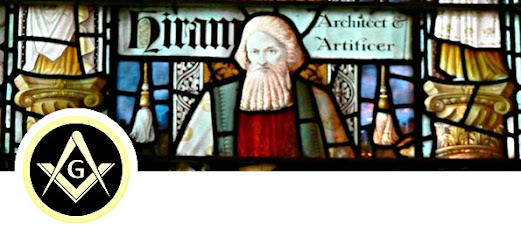
Articles les plus récents
LES SENTIERS D’HERMÈS






































